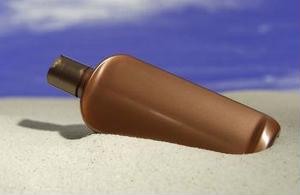
At the age of 18, Liya Kebede left her home country of Ethiopia for France in hopes of becoming a model. She was immediately recognized by top fashion designers like Tom Ford and since then, she has gone on to explore an acting career and taken on successful ventures as a humanitarian.
Kebede's role in 2006's The Good Shepard led to her being cast in the 2009 film adaptation of Desert Flower as the character Waris Dirie.
In 2005, Kebede was given the opportunity to advocate for maternal, infant and neonatal healthcare as a Goodwill Ambassador for the World Health Organization. Just months later, the multi-talented model began the Liya Kebede Foundation, which raises money for the Durame Hospital in Awassa.
Kebede also supports her native continent with her clothing line called Lemlem, which utilizes the skills of African artisans and aids communities in becoming self-sustaining.
Perhaps because of her glowing ethnic skin, Kebede was recently named a spokesperson for L'Oreal Paris, joining other beauties like Frieda Pinto and Jennifer Lopez.









